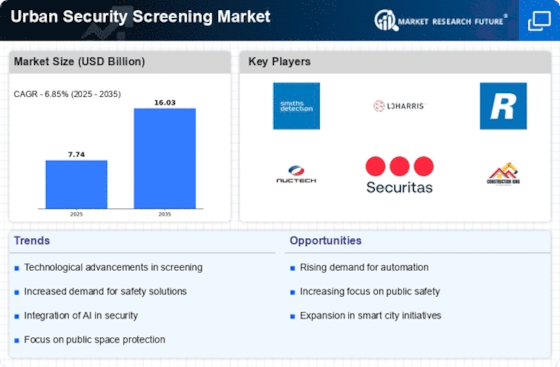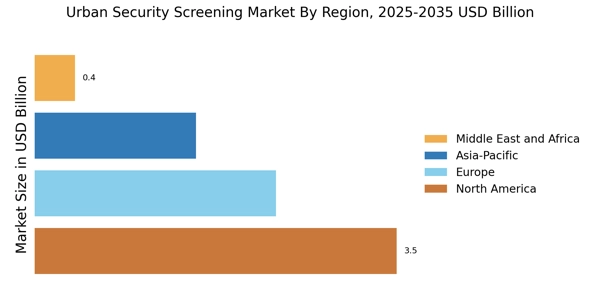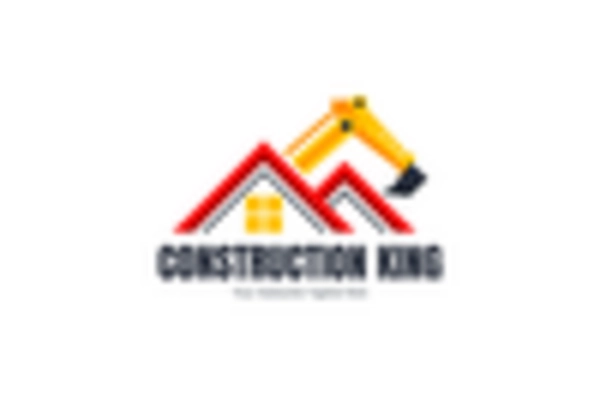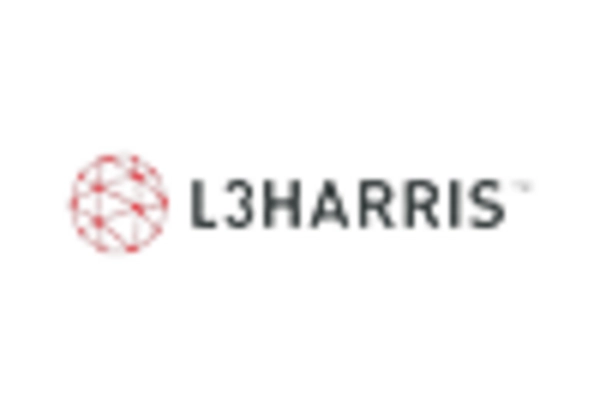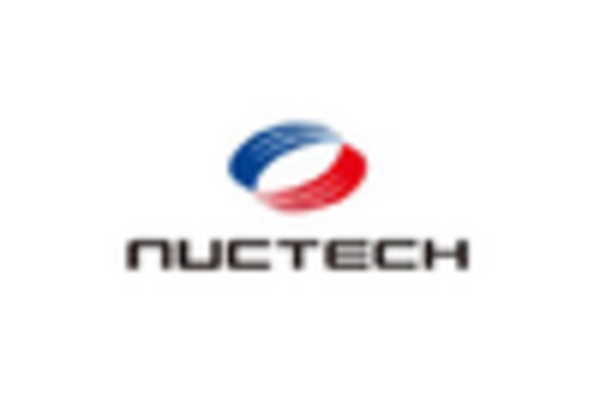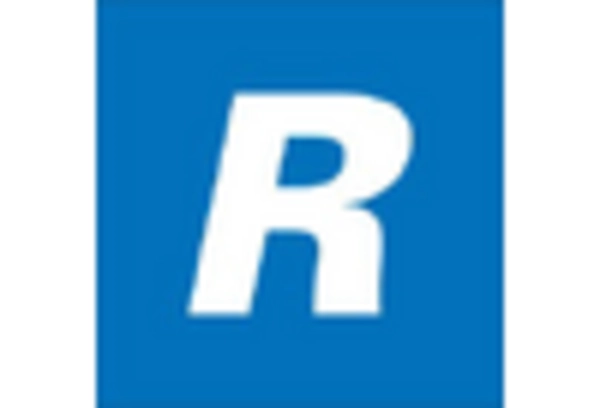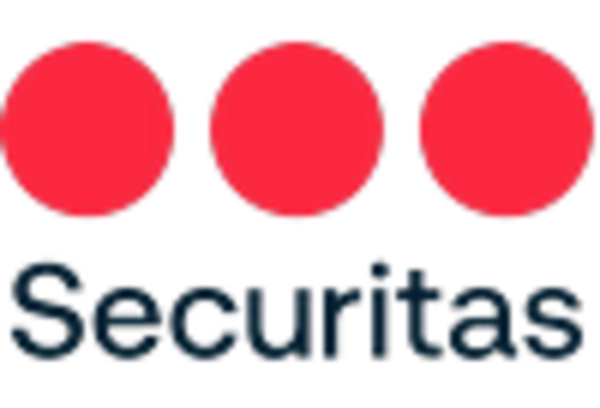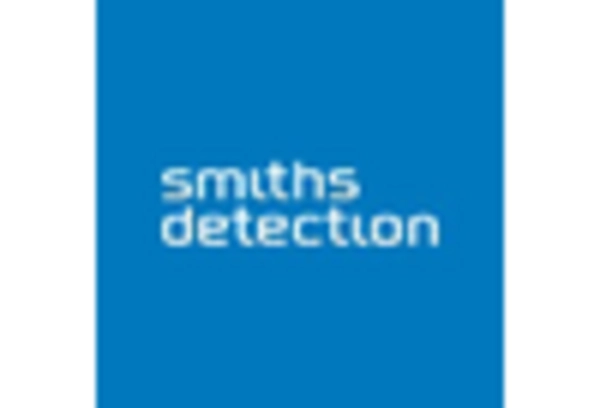Increasing Urbanization
The rapid pace of urbanization is a key driver for the Urban Security Screening Market. As more individuals migrate to urban areas, the density of populations increases, leading to heightened security concerns. This urban growth necessitates the implementation of advanced security screening solutions in public spaces such as airports, train stations, and large events. According to recent data, urban areas are projected to house approximately 68% of the world's population by 2050, which underscores the urgent need for effective security measures. Consequently, the demand for innovative screening technologies is likely to rise, as urban planners and security agencies seek to ensure public safety while accommodating growing populations.
Rising Security Threats
The prevalence of security threats, including terrorism and violent crime, significantly influences the Urban Security Screening Market. Recent statistics indicate that urban areas are often targeted due to their high visibility and concentration of people. This reality compels governments and organizations to invest in robust security screening systems to mitigate risks. The market for security screening technologies is expected to expand as cities implement more stringent security protocols. For instance, the global market for security screening is anticipated to reach USD 10 billion by 2026, reflecting the urgent need for enhanced safety measures in urban environments. This trend suggests that the Urban Security Screening Market will continue to grow in response to evolving threats.
Technological Innovations
Technological advancements play a pivotal role in shaping the Urban Security Screening Market. Innovations such as artificial intelligence, machine learning, and advanced imaging technologies are revolutionizing the way security screening is conducted. These technologies enhance the accuracy and efficiency of screening processes, allowing for quicker identification of potential threats. For example, AI-driven systems can analyze vast amounts of data in real-time, improving decision-making for security personnel. The integration of these technologies is expected to drive market growth, as urban areas increasingly adopt sophisticated screening solutions to address security challenges. The ongoing development of smart city initiatives further emphasizes the importance of incorporating advanced security technologies into urban planning.
Government Initiatives and Funding
Government initiatives aimed at enhancing public safety are a significant driver of the Urban Security Screening Market. Many governments are allocating substantial budgets to improve security infrastructure in urban areas. This funding often supports the acquisition of advanced screening technologies and the establishment of comprehensive security protocols. For instance, recent government reports indicate that public safety budgets have increased by an average of 5% annually in major cities. Such investments not only bolster security measures but also stimulate market growth by creating demand for innovative screening solutions. As urban areas continue to prioritize safety, government support is likely to remain a crucial factor in the expansion of the Urban Security Screening Market.
Public Awareness and Demand for Safety
The growing public awareness regarding safety and security issues is driving the Urban Security Screening Market. Citizens are increasingly concerned about their safety in public spaces, leading to heightened expectations for effective security measures. This awareness has prompted organizations and municipalities to prioritize the implementation of advanced security screening technologies. Surveys indicate that over 70% of urban residents express a desire for enhanced security measures in their communities. As a result, there is a growing demand for innovative screening solutions that can address these concerns. This trend suggests that the Urban Security Screening Market will continue to expand as stakeholders respond to public expectations for improved safety in urban environments.

